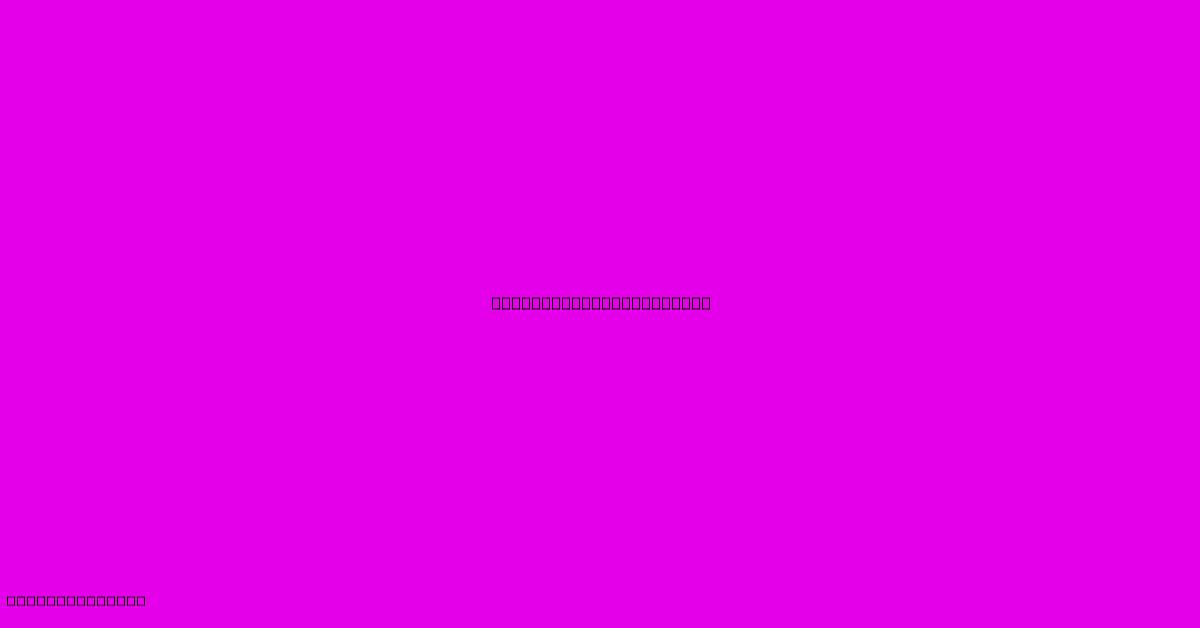Rdx Technology Package

Discover more detailed and exciting information on our website. Click the link below to start your adventure: Visit Best Website mr.cleine.com. Don't miss out!
Table of Contents
Unpacking the RDX Technology Package: A Deep Dive into its Features and Benefits
The RDX (Removable Disk Cartridge) technology package represents a significant advancement in data storage and retrieval, offering a compelling alternative to traditional tape and disk-based systems. This article delves into the core features, advantages, and applications of RDX technology, exploring why it's becoming a preferred choice for various industries.
What is RDX Technology?
RDX technology utilizes a robust removable cartridge system designed for high-capacity data storage and easy archiving. Unlike tape, which suffers from sequential access limitations, RDX cartridges offer random access capabilities, enabling faster data retrieval. Furthermore, RDX cartridges are significantly more durable and resistant to environmental damage than traditional magnetic tapes. The technology combines the capacity and speed benefits of hard drives with the portability and convenience of removable media.
Key Features of the RDX Technology Package:
-
High Capacity: RDX cartridges are available in various capacities, ranging from several hundred gigabytes to multiple terabytes, providing ample storage for extensive data sets. This scalability makes it suitable for organizations with diverse storage requirements.
-
Fast Data Transfer Rates: Compared to tape backup systems, RDX boasts significantly faster read and write speeds. This translates into quicker backups, restores, and data access, enhancing operational efficiency.
-
Random Access Capability: The ability to directly access specific files eliminates the need for sequential scanning, saving valuable time and increasing productivity.
-
Easy Data Archiving: The removable cartridges facilitate simple offsite data storage for disaster recovery and long-term archiving. The cartridges themselves are compact and easily transportable.
-
Robust and Reliable: RDX cartridges are built to withstand the rigors of regular use and transportation, boasting superior durability and data protection compared to traditional tape backups.
-
Cost-Effective Solution: While initial investment might seem comparable to other backup solutions, the long-term cost-effectiveness is appealing, particularly when considering the reduced downtime and increased operational efficiency.
Advantages of RDX Technology Over Traditional Methods:
| Feature | RDX Technology | Traditional Tape Backup |
|---|---|---|
| Access Speed | Random Access | Sequential Access |
| Data Transfer | Significantly Faster | Significantly Slower |
| Reliability | Higher Durability & Longevity | Prone to damage and wear |
| Portability | Easy to transport cartridges | Difficult to manage large tapes |
| Scalability | Adaptable to various capacities | Capacity limitations |
| Cost-Effectiveness | Lower long-term operational costs | Higher long-term operational costs |
Applications of RDX Technology:
The versatility of RDX technology makes it suitable for a wide range of applications:
-
Data Backup and Recovery: A cornerstone application, providing reliable and efficient data protection for businesses of all sizes.
-
Disaster Recovery: Facilitates quick and easy data restoration in case of unforeseen events.
-
Long-Term Archiving: The robust cartridges ensure data integrity for extended periods.
-
Video Surveillance: Ideal for storing and managing large volumes of video footage.
-
Medical Imaging: Facilitates storage and retrieval of high-resolution medical images.
-
Digital Asset Management: Efficiently stores and manages large digital media libraries.
Conclusion:
The RDX technology package presents a robust, efficient, and cost-effective solution for a variety of data storage and retrieval needs. Its superior speed, reliability, and ease of use make it an increasingly popular choice for businesses and organizations seeking to enhance their data management capabilities. By combining the benefits of hard drives and removable media, RDX addresses the limitations of both tape and traditional hard drive-based systems, offering a compelling option for the modern data landscape.

Thank you for visiting our website wich cover about Rdx Technology Package. We hope the information provided has been useful to you. Feel free to contact us if you have any questions or need further assistance. See you next time and dont miss to bookmark.
Featured Posts
-
City Vs Everton Live Premier League
Dec 27, 2024
-
Blue Technologies Cleveland Ohio
Dec 27, 2024
-
Sigue El Boxing Day En Vivo
Dec 27, 2024
-
Goles Liverpool 3 1 Leicester
Dec 27, 2024
-
Gemini Technologies
Dec 27, 2024
